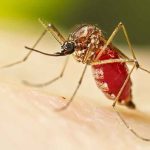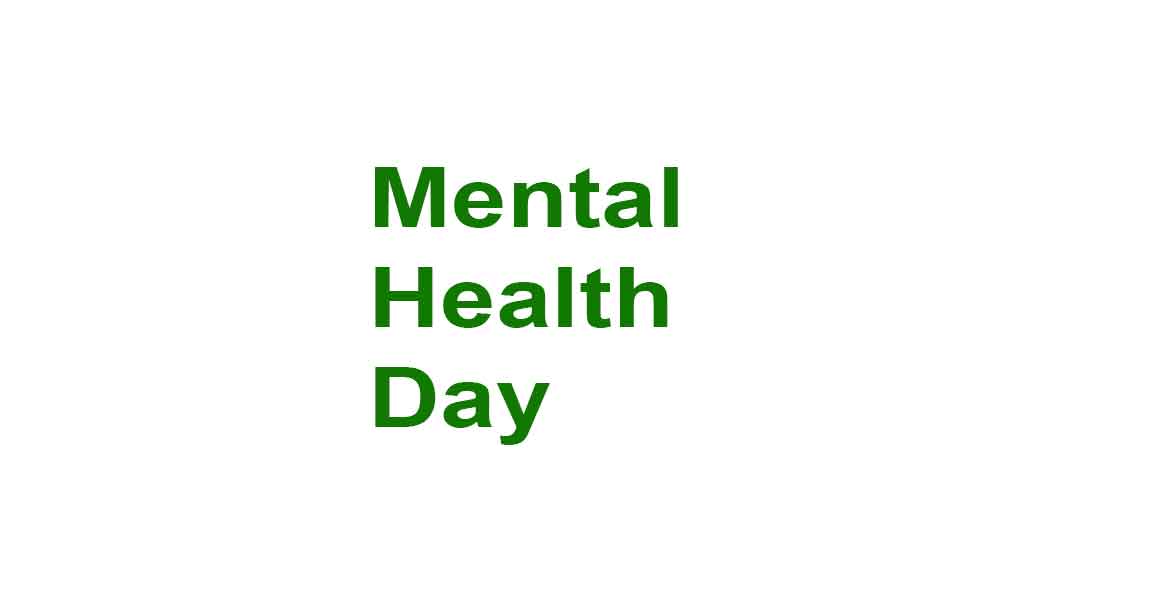Dr. N. Munal Meitei,
Environmentalist, email- nmunall@yahoo.in

World Mental Health Day is observed on 10th October with this year’s theme, ‘Mental Health at Work’, to raise awareness the vital connection between mental health and work. According to WHO depression and anxiety alone result in the loss of approximately 12 billion workdays each year. The difference between physical health and mental health is physical health is only the condition of the body, while mental health is a general state of wellbeing. Mental health includes our emotional, psychological and social wellbeing in every stage of life. Nature is vital in keeping us emotionally, psychologically and physically healthy.
Individuals with mental disorders have a decreased life expectancy of 10–15 years in comparison with the general population. Around 20% of the world children and adolescents have mental health condition with suicide and among high school students, increased more than 40%, the second leading cause of death among 15-29 years. Every 40 seconds, a person dies from suicide. Mental health also impacts on issues such as alcohol, drug-abuse and social violence.
In 2019, 1 in 8 people around the world are living with mental health problems. More than 19.86% of adults are experiencing a mental illness, 4.91% with severe symptoms. Mental health problems have negative impacts on poverty, employment, safety, health cost; succeed in schools and community & family disruption. One of the possible factors for rising mental illness could be increasing use of social Medias. Mental health is now not a personal problem but a social problem. WHO states, mental health and human right are integral and interdependence.
To ensure a better mental health, we need to optimize timely intervention, prevention and promotion of good mental health opportunities at the time of onset of mental disorders. In India, 15% of our population suffered from one or more mental health problems. A meta-analysis of community survey estimates, in India the prevalence of depression and anxiety could be up to 33 per 1,000 persons.
In the country, with a meager 5000 psychiatrists and less than 2000 clinical psychologists, the treatment gap is highest for the 1.42 billion populations which have left 70-90% of people without mental illness treatment. The ratio of psychiatrists in developed countries is 6.6 per 100,000 and the average number of mental hospitals globally is 0.04 per 100,000 persons, compared to 0.004 in India. Poor awareness of mental health symptoms, social stigma and lack of adequate resources and facilities, stop people from getting the help they need. Also, mental health services are highly inaccessible and up to 40% of patients must travel more than 10 km to reach the first available service at the district headquarters.
It’s a fact, people who get less connecting with nature is most at risk of mental health problems. Climate change has the psychological impacts on human mental health and well-being. Rising temperatures can fuel mood and anxiety disorders, depression, behaviors, schizophrenia and vascular dementia and can increase the suicide rates, according to reports. Human health and well-being are inextricably linked to our natural environment. IPCC warns as our planet continues to warm, billions of people around the world will experience worsening physical and mental health.
Spending time in nature is found to reduce with mental health problems which are endorsed by the research work in ecotherapy. Being outside in natural light is found helpful from seasonal affective disorder, a type of depression that affects people during particular seasons or times of year. Research reveals that environments can increase or reduce our stress, which in turn impacts our bodies. What we are seeing, hearing, experiencing at any moment of life is changing not only our mood, but how our nervous, endocrine and immune systems are working.
The stress of an unpleasant environment can cause us anxiety, or sad, or helpless. Being in nature, or even viewing scenes of nature, reduces anger, fear and stress and increases pleasant feelings. Exposure to nature not only makes us feel better emotionally, it contributes to our physical wellbeing, reducing blood pressure, heart rate, muscle tension, the production of stress hormones and suppresses our immune system.
Plants help to take away some of the anxiety and tension of life. We know that viewing plants, flowers, water and other natural elements reduces our stress. Research done in hospitals, offices and schools has found that even a simple plant in a room can have a significant impact on stress and anxiety.
Anger slew anxiety and depression which are two of the most common mental health concerns in our society. In addition, nature helps us cope with pain because we are genetically programmed to absorb by natural scenes and distracted from our pain and discomfort. In Andrea Taylor’s research on children shows that time spent in nature increases their attention in studies.
The Mayo Clinic recommends limiting children’s exposure to screens—including computers, television, mobiles and video games—to two hours per day can have serious consequences, including obesity, behavioral changes, irregular sleep, violent tendencies, poor academic performance and dampened creativity.
Many studies show that after a stressful event, images of nature very quickly produce a calming effect. Within 3/4 minutes after viewing natural scenes, blood pressure, respiration rate, brain activity and the production of stress hormones all decrease and mood improves. This again has an evolutionary advantage because it allows us to recuperate and recover our energy quickly.
According to health.harvard.edu, having a pet as a companion can reduce cholesterol and triglyceride levels and lower blood pressure, depression, and anxiety on individuals and help children and the elderly with mental health problems. Science has now identified that stress shortens our telomeres, the “end caps” of our DNA strands, which causes us to age more quickly.
It’s true; our all solutions are in nature. Clean air, water, plants and food supplies are essential for our personal health and wellbeing. The relationship between the environment and humanity is one of interdependence—each affects the other. Therefore, let’s protect our environment for a better mental health and wellbeing of everyone.













